Last Updated on February 14, 2022
Do you know about the health benefits of potassium? You might be surprised how important it is for your health to get enough of this important nutrient!
Potassium is one of those under-appreciated nutrients with a pretty major impact on how your body functions. It’s found most plentifully in fruits and vegetables, which the vast majority of us eat far too few of.
Unless you’re in the small percentage who eat 5-9 servings of fruits and veggies most days, it’s very likely you’re falling short of the recommended amounts of potassium. Here’s what you need to know to reap the health benefits of potassium. Read on to find the best sources of potassium for a healthier diet!
What to Know about the Health Benefits of Potassium
Every cell in your body needs potassium. Potassium affects the function of your muscles, brain, and nervous system, and deficiency can raise the risk for a number of chronic diseases.
You may have heard about potassium’s effect on blood pressure. When we eat a high-sodium, low-potassium diet, it can raise blood pressure and put us at risk for other health problems.
If you have high blood pressure, you may want to try not only cutting back on sodium, but also eating more potassium-rich foods. Sufficient potassium intake also lowers your risk for stroke and heart disease and improves bone strength and muscle function.
As a reader of this blog, you may be more interested in how getting enough potassium might make you feel better in the short term rather than in these more long-term health effects.
Good news! Potassium is one of those important nutrients that could also help you with less serious, but still seriously annoying, health complaints like fatigue, muscle soreness, and sleep problems.
The RDA for potassium is 4700mg. If you only eat a serving or two of fruits and vegetables each day, you’re probably falling short, though you can also get some from dairy, meat, and fish. You can’t store potassium, so try to get plenty every day from the sources of potassium listed below.
Get the Health Benefits of Potassium — Best Sources of Potassium to Add to your Diet
Note that cooking methods will affect how much potassium remains in your food. Boiling a potato, for instance, halves the amount of potassium it contains.
Bake, saute, or steam vegetables to preserve potassium, and enjoy plenty of raw of potassium-rich veggies. Also watch for sodium in canned foods like beans and tomato products, as the balance of sodium and potassium in your diet is important.
Best Sources of Potassium
- Avocado, 1 medium: 975 mg
- White beans, 1 cup cooked: 1004 mg
- Sweet potato, 1 cup mashed: 950 mg
- Winter squash, 1 cup cooked: 896 mg
- Spinach, 1 cup cooked: 839 mg
- Romaine lettuce, ½ head: 773mg
- Lentils, 1 cup cooked: 732 mg
- Split peas, 1 cup cooked: 710 mg
- Tomato paste, ¼ cup: 664 mg
- Black beans, 1 cup cooked: 644 mg
- Potato, medium, baked with skin: 610 mg
- Yogurt, 1 cup: 579 mg
- Chard, 3 leaves: 546 mg
- Halibut, 3 ounces cooked: 490 mg
- Orange juice, 8 ounces: 496 mg
- Broccoli, 1 cup cooked: 457 mg
- Cantaloupe, cubed, 1 cup: 431 mg
- Tomato, 3” diameter: 431 mg
- Banana, 1 medium: 422 mg
- Prunes, ¼ cup: 398 mg
- Pork tenderloin, 3 ounces, cooked: 382 mg
- Dried apricots, ¼ cup: 378 mg
- Milk, 1% low fat, 8 ounces: 366 mg
- Salmon, 3 ounces, cooked: 326 mg
- Raisins, ¼ cup: 309 mg
- Mushrooms, 1 cup: 305 mg
- Molasses, 1 tablespoon: 293 mg
- Cucumber, half of 8” fruit: 221 mg
- Chicken breast, 3 ounces, cooked: 218 mg
- Dandelion greens, 1 cup raw, chopped: 218 mg (try some dandelion tea or give one of these many uses for dandelions a try)
Here’s a longer list of foods rich in potassium from the USDA. And you can look up individual foods in their database if you want to be extra-nerdy, like I was writing this post!
–> Need some recipes to work these potassium-rich foods into your diet? Check out the incredible variety of things you can do with sweet potatoes, or try some of these delicious and healthy bean recipes. So many tasty ways to enjoy the health benefits of potassium!
Medications and health conditions may affect how much potassium you need. Read more here.
So let’s do the math. Suppose your daily diet looks something like this:
Breakfast: Large blueberry muffin (168 mg) with a cup of coffee (124 mg) = 392 mg potassium
Snack: “Energy” bar (280 mg)
Lunch: 6” Turkey sub with lettuce and tomato (466 mg) bag of potato chips, (335 mg), soda = 801 mg potassium
Snack: Apple (195 mg)
Dinner: 2 cups white pasta (94 mg) with 1 cup tomato and meat sauce (720 mg), water, 1 cup ice cream (328 mg)= 1236 mg potassium
Potassium grand total: 2904
While 2904 sounds pretty good, it’s only 62% of the RDA, like getting a D- in potassium!
And though there are some perfectly healthy choices in this somewhat ho-hum meal plan, overall, it’s not giving you a lot of nutrition. The blueberry muffin, energy bar, pasta, and sandwich bread are mostly simple carbs with few of those important vitamins and minerals that give you energy and keep your immune system functioning well.
(Swap white for whole-grain and you’re a little better off with potassium and other nutrients, as well as fiber. Or try replacing your pasta with spaghetti squash, or whip out that spiralizer to make noodles out of zucchini or carrots!)
Some simple shifts can change the nutrient profile of this diet pretty dramatically and help you get more of the health benefits of potassium. Look back at that list of foods rich in potassium, and you’ll notice that adding some beans, greens, and fruits to your diet can add a lot of potassium as well as antioxidants, vitamins, and minerals like magnesium that benefit your health in myriad ways.
4 Savvy Ways to Get More of the Health Benefits of Potassium:
1. Rethink breakfast
Mega-muffins (or mega-bagels, or pastries, or whatever you favor) are very high in calories, and because they’re mostly simple carbs, they likely leave you feeling pretty hungry not long afterwards. The 20 or so blueberries in your muffin don’t make up for all the sugar, white flour, and vegetable oil!
A couple eggs scrambled with a small handful of fresh spinach provides not only 366 mg of potassium but also protein and a host of other nutrients. Have them with some whole grain toast spread with avocado and you’re on your way to hitting that RDA.
No time for eggs? Some whole-grain cereal with milk (160mg and 398mg per cup respectively) and a piece of fruit is a decent option. Smoothies with fruits, greens, and yogurt can also up your potassium intake significantly.
2. Snack smart
Replace that processed, sugar-laden energy bar with a yogurt (579 mg) and a little fresh fruit, ¼ cup of hummus (106 mg) with a couple medium carrots (390 mg), or a banana (422 mg). A bowl with 10 cherry tomatoes (YUM!) has 400 mg. Salsa and guacamole are also very high in potassium, just go easy on the chips!
3. Add salads and other vegetables to your meals
Each leaf of raw spinach gives you 56 mg, so a small spinach salad can really add a lot of potassium, as can a mixed-vegetable side salad.
Adding more vegetables to your sandwich will also help, as would swapping out potato chips for a side salad.
A medium green pepper added to your quesadilla or frittata adds 208 mg.
Soups filled with vegetables and beans are a great way to get more potassium and all the other health benefits of a vegetable-rich diet. Check out these mouth-watering healthy bean recipes! Or try a super-easy (and so satisfying) homemade split pea soup or hearty vegan white bean soup.
Or try swapping out your pasta for some potassium-rich spaghetti squash.
Even adding vegetables to your tomato sauces and pizza toppings will help.
4. Got a sweet tooth? Choose fruit
Melons, citrus, and other delicious fruits have plenty of potassium. If you’re really after a sweet try making dried bananas candy or one of these rhubarb treats! (Rhubarb has an impressive 351 mg potassium per 25-calorie cup.) Or check out this collection of banana ice cream recipes.
And be sure to save your banana peels. You can get some additional potassium by brewing them into banana peel tea, a popular sleep remedy.
Learn some simple recipes for pasta toppings and hearty vegetable and bean soups and you’re on your way to hitting your potassium goals. Check out this bean and tomato-filled chili recipe as well.
You don’t need to look up every food choice you make to see how it ranks for potassium, but when you make an effort to eat more whole, unprocessed food that includes a mix of produce and legumes (as well as fish, meat and dairy if you eat them), you’ll likely hit your goal for potassium as well as lots of other important nutrients that support better health.
What’s your daily diet like? Do you get enough to reap the health benefits of potassium?
This post is one in a series of Savvy Health Hacks, easy ways to ensure your body has what it needs to function optimally. Ready to hack your health? Check out these other practical tips to help you fight colds, sleep better, ward off disease, and have more energy:
- How to Eat For Better Sleep
- Are You Getting Enough Magnesium?
- Why You Need a Water Filter
- Immune Boosting Foods
- Health Benefits of Sunflower Seeds
- Easy Health Hack: Sit Less
- Anti Inflammatory Food
- Health Benefits of Turmeric
- Are You D-ficient?
- Easy Ways to Reduce Cortisol
Pin to save the health benefits of potassium for later!
Disclaimer: I’m a health enthusiast, not a medical professional. Content on this website is intended for informational purposes only and is not meant to provide personalized medical advice. I draw on numerous health sources, some of which are referenced above. Please consult them for more information and a licensed professional for personalized recommendations.
Photo credits: Mike Licht, Hans Splinter,Taavi Randmaa, cookbookman17, Steven Jackson, Pamela Bates, theilr, Miyuki Kobayashi via Flickr
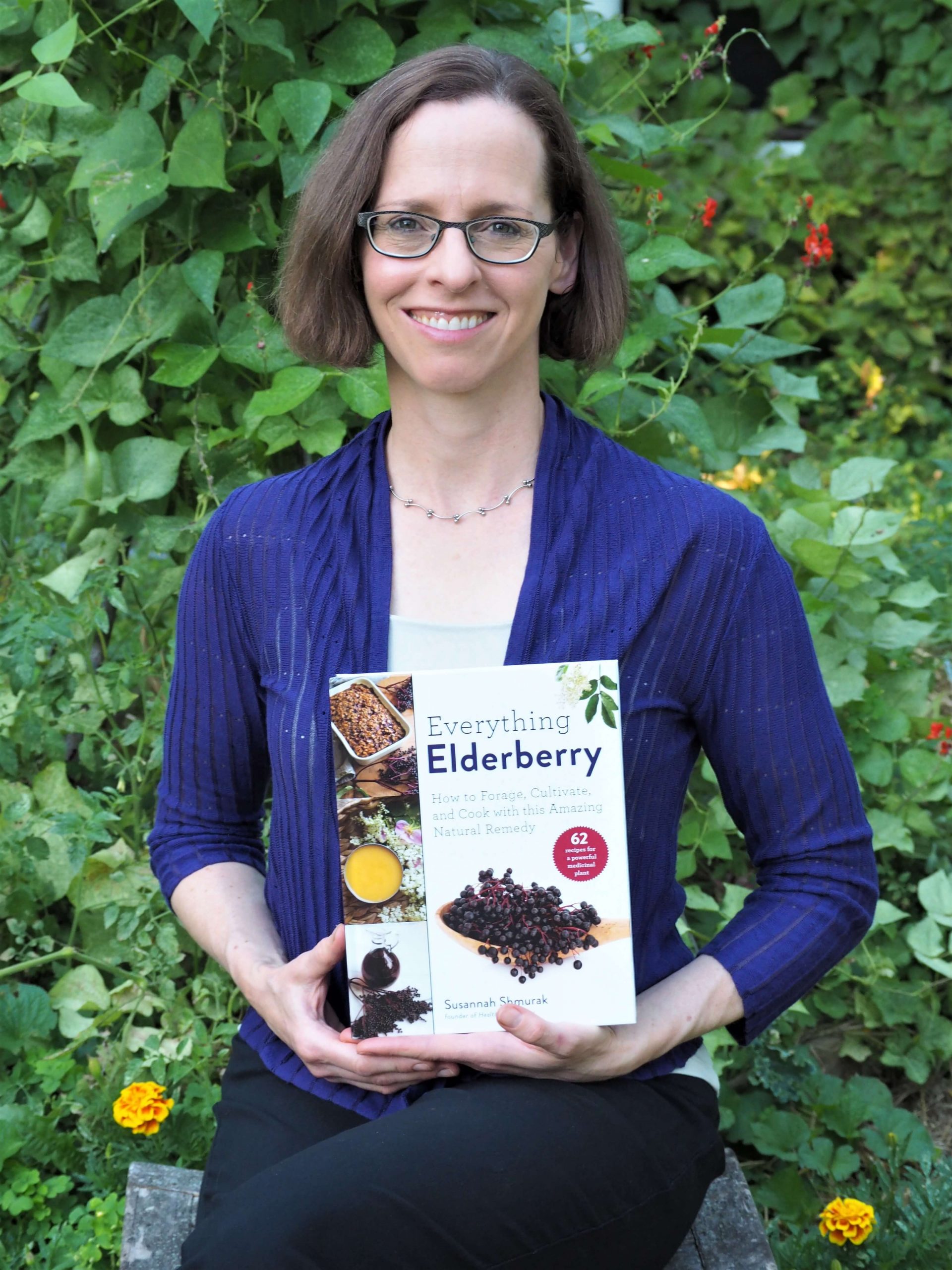
Susannah is a proud garden geek and energy nerd who loves healthy food and natural remedies. Her work has appeared in Mother Earth Living, Ensia, Northern Gardener, Sierra, and on numerous websites. Her first book, Everything Elderberry, released in September 2020 and has been a #1 new release in holistic medicine, naturopathy, herb gardening, and other categories. Find out more and grab your copy here.

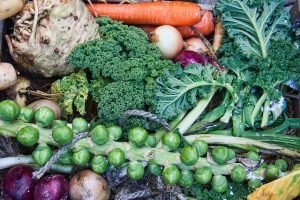

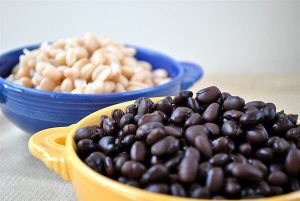
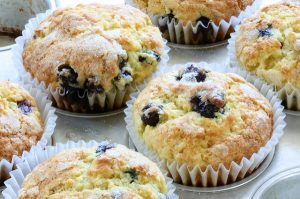

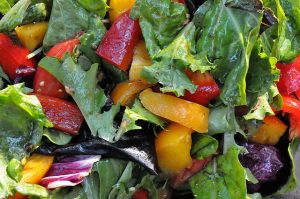

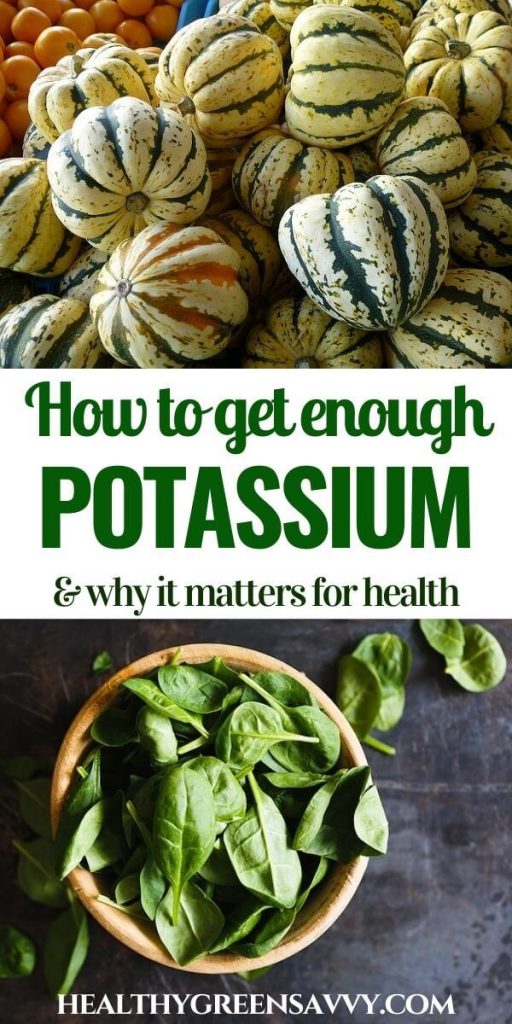
 Hi, I'm Susannah, a garden geek, energy nerd, and fan of healthy food and natural remedies. Need some simple, practical solutions for living healthier and greener? You've come to the right place! More about me and my green projects
Hi, I'm Susannah, a garden geek, energy nerd, and fan of healthy food and natural remedies. Need some simple, practical solutions for living healthier and greener? You've come to the right place! More about me and my green projects